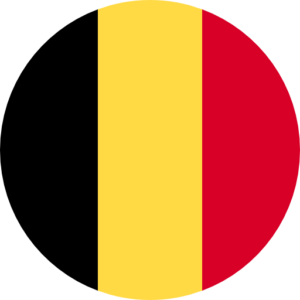Steered by an international and prestigious committee, the AgeingFit conference programme is designed to address
the main issues of the healthy ageing and care sectors: from major financial and regulatory aspects to the latest innovations in health, nutrition and care.
The programme is organised around 5 tracks addressing the challenges of innovation for ageing well, from prevention to care.
PLENARY SESSION
DAY 1 – Monday, March 6th
11.00 am – 12.30 pm CET
From healthy ageing to lifelong approach: Towards better prevention and integrated care pathways
Faced with an ageing population, Europe is now moving towards a lifelong approach to health, which entails taking into consideration a set of determining indicators throughout a person’s life. Leveraging these variables should lead to better care and the identification of healthier preventive interventions for more active ageing, minimising the occurrence of age-related conditions and frailty.
As following a person’s life course to better prevent health decline requires a consistent coordination, how are public organisations and silver economy key players preparing to play their part in enabling a more preventive health system? What are the existing solutions and approaches to lifelong prevention? How to better integrate care pathways to strengthen these preventive efforts? How can we improve our preventive health capacity and what role can new technologies play? How to efficiently aggregate a person’s data to treat them on the long term? What are the prospects for the next few years in this area and what role do silver economy innovators have to play in implementing lifelong prevention? To what extent can care providers also contribute to this pivotal change in the way people are cared for and supported?
Moderator: Marc Lange, Secretary General, EHTEL ![]()
- Peter Varnai, Partner, Health & Life Sciences, Technopolis Group

- Piret Hirv, Manager, Estonian Connected Health Cluster

- Carl-Johan Robertz, Medical Innovation Director, Ramsay Santé Innovation Hub

- Wim Van Boghout, Group Chief Innovation Officer, Korian

TRACK 1: Scaling up health innovations in the silver economy
This track aims to provide the silver economy players with a fresh look at the innovative healthy ageing policies, funding sources and investments to navigate a changing market, to identify opportunities and to innovate successfully.
DAY 1 – Monday, March 6th
2.00 pm – 3.30 pm CET
![]()
Panel discussion
Discussing the role and limits of data in improving ageing population health
Aggregating life course data could lead to a more personalised and preventive care. How does data currently contribute to healthy ageing? What are data applications in the matter? What are the obstacles to collect and treat data? What are the limitations and what is needed to accelerate the usage of data and its efficiency in healthy ageing? How to improve patient pathways and health delivery thanks to data? What improvement and evolution can be foreseen?
Moderator: Yakov Ozer, Co-Founder & CEO, HealthyLongevity.guide ![]()
- Shimrit Samuel, AI Specialist, Corporate Development Executive, Angel Investor

- Heiko Schmidt, Longevity/AI specialist, Ahead

- Mathias Schlögl, Chief Medical Officer Geriatric Medicine, Clinic Barmelweid

- Maaha Suleiman, Founder & CEO, CareAIgo

DAY 2 – Tuesday, March 7th
10.30 am – 11.30 am CET
![]()
Toolbox session
Entrepreneurs’ checklist for successful scaling of healthy ageing innovations
The promise of addressing an unmet need in a new way is only the first step to a successful innovation. This session will provide practical guidelines for entrepreneurs in the silver economy on how to effectively develop and scale up their innovation. What are the targets and regulations to navigate when developing a healthy ageing innovation? How to define and access your first market? What type of business model should be chosen accordingly? How to identify potential partners and funding sources? What are the critical milestones to reach in a company development and what about internationalisation? In short, what are the key points to put all chances on your side?
Moderator: James Somauroo, Co-Founder & CEO, SomX ![]()
- Jéssica Morais, Researcher, imec-SMIT-Vrije Universiteit Brussel

- Grace Gimson, CEO, Holly Health

- Karina Muller, Co-Founder & Managing Director, Motivity Care

- Simone Tomaz, Postdoctoral Research Fellow, University of Stirling

2.00 pm – 3.00 pm CET![]()
Case studies
What are the current proposed business models for prevention products and solutions?
As part of a life-course approach to health, preventive solutions will have an important role to play. Yet, as these approaches may be less tangible than care and treatment, the development of innovations dedicated to prevention can be a bumpy road. How can a product be qualified as preventive and how can its effect be assessed? What are the current frame and regulations concerning these products? What criteria should be taken into consideration in this matter? What business models have proven themselves to be effective? How to identify the players who finance these solutions? Toward which actors are these solutions directed towards: public health systems, private organisations, private people? To what extent are those products sold directly to consumers?
Moderator: Victoria Lamour-Chambon, Chief Development & Strategy Officer, INDIENOV ![]()
- Manfred Ruthsatz, Executive Director, Nutrition+HealthCARE

- Jordi Ferrer, Investment Director, Ship2B Ventures

- Martin Frölander, Founder & CEO, Junoverse

TRACK 2: Prevention through nutrition and physical activity
Appropriate nutrition and physical activity are key to the health of older adults. The challenges of their changing nutritional needs, of their sensory food perception and appetite, offers an increased potential for innovation for researchers and food manufacturers. This track aims to give insight into the latest innovative products, scientific breakthroughs, and opportunities in nutrition and for the preservation of older people’s capital for active ageing.
DAY 1 – Monday, March 6th
4.00 pm – 5.00 pm CET
![]()
Case studies
Exploring the role of nutrition in frailty: Evidence and perspectives
Inadequate nutrition is not the only factor of frailty, but it does contribute to it, protein deficiency being for example one of the main causes of sarcopenia. As nutrition is identified as a lever for healthy ageing, there is a need to explore further the role it plays in the onset adaptable component of in ageing, there is a need to further explore the role that it does play in the onset and mitigation of frailty. Could nutrition be used to treat or prevent a frail state? Is there a point when it is too late to act? What are the current approaches of nutrition for older people and frailty prevention? What can be improved?
Moderator: Guido Iaccarino, Full Professor of Internal Medicine, University of Naples Federico II ![]()
- Camille Chambonniere, PhD Student, Laboratoire AME2P, INRAE

- Anne-Kathrin Illner, Associate Professor, Human nutrition, prevention and population health sciences, UniLaSalle

- Araksya Topchyan, Global Segment Manager Medical Nutrition, DSM

- John Farrell, Director, RSCN

5.15 pm – 6.15 pm CET
![]()
Case studies
Active ageing: What are the latest innovative approaches to preserve physical and cognitive capital?
Active ageing promotes full engagement in life within seven dimensions of wellness: emotional, environmental, cognitive, physical, vocational, social and spiritual. What actions can be taken to preserve the physical and cognitive capital of older adults? How to act on each aspect of active ageing to improve people’s overall health? What is the latest research on the matter and what role does it play in developing new approaches? Are public policies doing enough to promote these prevention initiatives and interventions and if not, what can be done to do so?
Moderator: Johannes Kropf, Co-Founder & CTO, Salumentis ![]()
- Marta Torre, PhD, Institut des Sciences du Mouvement, Aix Marseille Université & CNRS

- Antonio Lindo da Cunha, Executive Director, Laboratory of Automatic and Systems, Instituto Pedro Nunes

- Daniel Hansson, Healthy ageing expert, Junoverse

- Daniel Crabtree, Research Fellow, University of the Highlands and Island

DAY 2 – Tuesday, March 7th
11.45 am – 12.45 pm CET
![]()
Toolbox session
Practitioners’ perspectives on nutrition: Dietary practices and needs of older adults
Older adults tend to have less appetite and to draw less energy from the nutrients in food. This panel will bring together geriatricians, dieticians, and care professionals to share their daily experiences of how they assess and manage the nutritional needs of older patients or residents. How do they evaluate and take into consideration these needs? How important is nutrition in the overall care and in what form does it intervene? Are care professionals able to adapt to each person’s nutritional needs?
Moderator: Manfred Ruthsatz, Executive Director, Nutrition+HealthCARE ![]()
- Sergio Polakof, Senior researcher, INRAE

- Sophia Amenyah, Registered Nutritionist & Postdoctoral Research Fellow, Bournemouth University

- Linda Mizun, Emergency Medicine Doctor & Board Certified Lifestyle Medicine Doctor, Hero of Health

TRACK 3: Diagnosing and treating age-related conditions
While ageing itself is not a disease, it is a risk factor for a range of conditions as people age.
This track will look at ongoing research projects and developments in understanding the mechanisms behind frailty and age-related conditions, how to diagnose and target a range of common late-life diseases and how such research can lead to better prevention.
DAY 1 – Monday, March 6th
4.00 pm – 5.00 pm CET
![]()
Case studies
What do we actually know about the biology of ageing and the relationship between ageing and age-related diseases? Is there a consensus on what the biology of ageing is, its research framework and guiding principles? Where do we stand in terms of clinical research and treatments for the main health conditions in older age? What advances in the next ten years could improve ageing and age-related conditions for all? What about funding? Is this field of research attractive for early-stage investors? Which social and economic benefits can be anticipated? Where to draw the ethical line?
Moderator: Maddalena Illario, Department of Public Health, R&D Unit Coordinator, Federico II University & Hospital ![]()
- Jan Adams, Venture Partner, Apollo Health Ventures

- Joris Deelen, Research Group Leader, Max Planck Institute for Biology of Ageing

- Iuliana Popescu, Research scientist, Barnstable Brown Diabetes Research Center, University of Kentucky

DAY 2 – Tuesday, March 7th
11.45 am – 12.45 pm CET
![]()
Case studies
Artificial Intelligence: What real potential to accelerate longevity and ageing research?
AI is an essential tool in healthcare and the longevity and healthy ageing sectors are no exception. AI has already contributed to the identification of longevity biomarkers and can further contribute to the development of personalised health and the acceleration of diagnosis. What concrete steps in the use of AI in longevity and ageing research have already been taken? How to use this tool efficiently and in what area of the ageing research? What are its limitations? Are the costs and administrative burden of implementing AI-based solutions worth the medical benefits they bring? What can be foreseen for the future?
Moderator: Adriana Diaz, Communities Manager, ECHAlliance ![]()
- Deepankar Nayak, CEO, Deep Longevity

- Charles Bark, CEO, HiNounou

- Guy Leitersdorf, CEO, Longevity AI

- Robert Konrad Maciejewski, CEO & Co-Founder, Biolytica AG

TRACK 4: Innovations in residential care settings
How are residential care settings responding to the demand of a growing ageing population? What type of innovation is happening in long-term care? How are institutions adapting in the way they provide care and in their interactions with stakeholders? This track intends to review the most recent initiatives, the new collaborations, and the pioneering organisational models at a European scale.
DAY 1 – Monday, March 6th
2.00 pm – 3.30 pm CET
![]()
Case studies
Insights into innovation strategies of residential care providers
As healthcare facilities and living space, care homes are multipurpose, and innovation can thrive at each level of action. What are the latest innovations being developed and implemented into the care practices? What is the strategy of care homes regarding innovation? To what extent do care homes collaborate and co-develop solutions with innovative companies, staff, or residents? What organisational models are proven to be effective for early adoption in this field? What are the keys to success and challenges in innovating to optimise the quality of care?
Moderator: Nil Meral, Project Manager, TheGerontechnologist.com & Gerontologist ![]()
- Sara Gonçalves, Co-Founder & CEO, Actif

- Tim van de Geijn, Program Manager Innovation, Sevagram

- James Mayer, Senior Manager, Investments & Venture Services, Centre for Aging + Brain Health Innovation

- Nina van der Vaart, Grant Consultant, Evers + Manders Grant Consultants

DAY 2 – Tuesday, March 7th
9.00 am – 10.15 am CET
![]()
Panel discussion
Will the future of long-term care be our own home?
An alternative to nursing homes is to bring care into people’s homes. The frontier between the two is already slowly fading in favour of a greater continuum of care but is limited by the need to adapt the home and to find new models to deliver long-term care. Which models already work and how can they be improved? How far are they relying on innovative technologies? How to make care at home effective in the later, less independent, stages of life? How to adapt the living place of older people while maintaining the feeling of being at home? How would this affect family care givers? What care models can we foresee?
Moderator: Stefan T. Kroll, International Affairs & Business Development, Management Board, terzStiftung ![]()
- Francisco Florez-Revuelta, Professor, Department of Computing Technology, University of Alicante

- Jonathan Gomez Raja, Chief Scientific Officer, FundeSalud

- Merja Tepponen, Chief Development Officer, South Karelian Social and Health Care district

- Lorraine Morgan, Founding Director – Stakeholder Engagement and Partnerships, Jackie’s Revolution CIC

- Mathieu Philippe, Co-Founder, Colville Capital Partners

10.30 am – 11.30 am CET
![]()
Panel discussion
There has been a growing climate of defiance towards care homes, partly due to the shortage of care workers in these institutions. However, residential care is still essential to support ageing people who are less autonomous, and solutions must be found to improve quality of care. What are the priority measures to implement to reconnect with residents and their caregivers? What could be the innovative initiatives to train care homes workforce? What are the technological options for dealing with staff shortages? What can be drawn from examples of teaching/research in care homes? More largely, how to foster the attractiveness of the sector and how should residential care itself evolve?
Moderator: Jackie Marshall-Cyrus, CEO & Founder, Jackie’s Revolution CIC ![]()
- Daniel Molinuevo, Research Manager, Eurofound

- Anne Champagne, Managing Director, Arémis & Cité Sérine

TRACK 5: Technologies and services for ageing well at home
As most of the ageing population aspires to age in place, this track focuses on the challenges to access care and preserve independence at home. What are the innovation opportunities in building a care system that both meets older adults’ expectations and keeps them safe? To what extent are we reassessing the whole living space and designing age-friendly solutions?
DAY 1 – Monday, March 6th
9.30 am – 10.30 am CET
![]()
Case studies
Innovations to manage chronic conditions for seniors at home
Older people are more fragile and prone to chronic conditions, requiring increased support and monitoring of the evolution of these diseases. How can this monitoring and support be implemented at home? What are the current systems for remote monitoring of chronic diseases, how can they be improved? Are some diseases easier to manage at home than others? What is the role of technologies and patient education in managing their disease at home? Is there a need to increase innovation in this area?
Moderator: Susie A. Ruff, Founder & Executive Advisor, RUFF & CO. Business Innovation ![]()
- Hugo Paredes, Senior Researcher, INESC TEC

- Afroditi Maria Konidari, Director & Co-Founder, Tendertec

- Rémi Lecouffe, Medical Director, Santélys

- David Kat, Business Development & Investor, Olive Diagnostics

DAY 2 – Tuesday, March 7th
9.00 am – 10.15 am CET
![]()
Panel discussion
Will the future of long-term care be our own home?
An alternative to nursing homes is to bring care into people’s homes. The frontier between the two is already slowly fading in favour of a greater continuum of care but is limited by the need to adapt the home and to find new models to deliver long-term care. Which models already work and how can they be improved? How far are they relying on innovative technologies? How to make care at home effective in the later, less independent, stages of life? How to adapt the living place of older people while maintaining the feeling of being at home? How would this affect family care givers? What care models can we foresee?
Moderator: Stefan T. Kroll, International Affairs & Business Development, Management Board, terzStiftung ![]()
- Francisco Florez-Revuelta, Professor, Department of Computing Technology, University of Alicante

- Jonathan Gomez Raja , Chief Scientific Officer, FundeSalud

- Merja Tepponen, Chief Development Officer, South Karelian Social and Health Care district

- Lorraine Morgan, Founding Director – Stakeholder Engagement and Partnerships, Jackie’s Revolution CIC

- Mathieu Philippe, Co-Founder, Colville Capital Partners

3.30 pm – 4.30 pm CET
![]()
Case studies
Which current applications and adoption for robots and virtual reality in older adults’ homes?
Independence and social interaction are two essential components of the well-being of the older adults, to which new technologies such as robots or virtual reality are trying to provide solutions. What are their current applications? How do older people perceive and receive these robots and virtual reality? What are the ethical limits and setbacks that can be seen in these technologies?
Moderator: Ad van Berlo, Manager R&D, Smart Homes ![]()
- Patrick Kessel, CEO & Co-Founder, PeriVision

- Peter Munch, Board Member, TakeAWalk VR

- Tess den Uyl, Research Consultant, VicarVision


Panel discussion: Moderated roundtable discussion consisting in an exchance of ideas and perspectives by international experts to delve into the latest challenges of the sector.

Case studies: Session that comprise a series of illustrative presentations followed by Q&As from the moderator and the audience.

Toolbox session: A toolbox session is designed to provide practical skills, easy-to-follow guidelines and take-home tools which delegates can put into practice to deal with their current issues.

